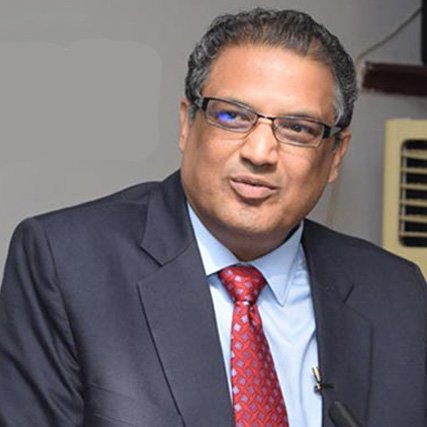The negotiations between the opposing political parties to resolve the political crisis are very welcome and are the voice of the heart of the entire nation, but at present these negotiations are being held half-heartedly. No one wants to lose anything at the table, both sides want to leave the table with a win, so no result is seen at present. The first sign of seriousness in the negotiations will be a ceasefire. Peace and reconciliation negotiations around the world begin after a ceasefire. Now, on one side, the PTI’s abusive brigade is firing a gun of insults and on the other side, the authorities and the government are not ready to make any concessions, so how can any result be achieved from the negotiations?
We have to create an environment for negotiations, stop blaming each other, and put aside our stubbornness and ego. Negotiations are successful only when both sides are not only determined to win but are also ready to lose. Flexibility ensures the success of negotiations. On the one hand, military courts are handing out sentences and on the other, Imran Khan is saying that the campaign to stop remittances will continue even during the negotiations, so there is no bright prospect of the success of the negotiations. Everyone wants a working relationship, everyone wants political stability, everyone wants the daily sit-ins and riots in the assembly to end, but despite these wishes, if no flexibility is shown, then the negotiations will not yield any results.
Believe it or not, but according to Liaquat Baloch of Jamaat-e-Islami, the negotiations between the PTI and the government mean that the PTI has accepted this new system and the February 8 elections. Apparently, they are accepting the system only as a temporary or forced process, but this is a huge flexibility. If this flexibility comes with the approval of Imran Khan, it can pave the way for political reconciliation. On the other hand, the government’s sitting with the PTI is also quite dangerous because the authorities have declared the accused of May 9 and November 26 as anarchists. The government is indebted to the authorities, so its hands are tied. It can neither forgive the crimes committed against the authorities nor give the PTI the political space that it is using itself. The government has nothing to give the PTI except good wishes. However, PTI can get at most Imran Khan’s detention in Bani Gala and the establishment of a rigging commission, but in return for this, Imran Khan’s acceptance of the system and silence will be major conditions. It remains to be seen how much scope and flexibility is shown by both sides in this matter. The release of the May 9 criminals who sought forgiveness from the authorities is a welcome move, and it should improve the environment.
It is true that Imran Khan has been a constant fighter, in the past he has also been practicing the politics of resistance, aggression and processions and sit-ins, but in the last two years he has not been able to achieve any of his goals, rather the opposite has happened that all his political moves have backfired. Be it May 9, February 8 or November 26, whatever he wanted could not happen and today’s situation is that despite being popular, he was first deposed and then he had to lose acceptance. In such a situation, he should have spent his time rationally, but he went the opposite way and kept facing more difficulties. He should have followed the example of Benazir Bhutto and Nawaz Sharif and remained part of the system by sitting in the opposition. If he had followed this strategy, his relations with the authorities would have improved and today he would have become the heartbeat of both the people and the army as an alternative to Shahbaz Sharif. But he tried to compete, the decision to clash with force was completely wrong. How can a lone political leader and an unarmed, unorganized political party compete with an organized and constitutionally armed army?
The father of democracy, Nawabzada Nasrullah, used to say that if democracy gets stuck somewhere, the solution is not dictatorship or war, but more democracy. In the recent negotiations, wherever there is a deadlock, wherever there is an obstacle, the solution is more negotiations. If negotiations continue, some solution will definitely come out. I would like to appeal to the negotiating teams on both sides that the time has passed when only brave and courageous warriors were heroes and ideals. Now, those who make peace, facilitate peace, and make the world a cradle of peace are also heroes and ideals. The Eastern world continued to worship Gaddafi, Saddam, and Hafez al-Assad, while the Western world praised the peace-loving Anwar al-Sadat. After fighting for 20 centuries, enduring wars, and nurturing hatred, the world has realized in the 21st century that understanding, reconciliation, and agreements are the best way forward. If Pakistan also wants to step into the modern world, advance in technology, or move towards prosperity, its foundation can only be laid by ending its conflicts. Political incomprehension is the biggest obstacle to Pakistan’s economic and social development. Reconciliation can be easily achieved through flexibility and giving space to each other.
Although the chances of success of the negotiations are low at present, no major relief is going to be given to any party, the negotiations will be stalled many times, but still negotiations are the only solution. In the future history of Pakistan, the names of those who make peace, not those who start wars, will be written in golden letters. The hero of the 21st century is not Hitler and Stalin, but Bertrand Russell, who talked about ceasefire, campaigned against it, even went into exile, but kept talking about peace. There is no Nawabzada Nasrullah Khan in today’s politics, but whoever from the government and the opposition succeeds in bringing about reconciliation will automatically become the Nawabzada Nasrullah Khan of today’s Pakistan. It remains to be seen when we, who are lovers of wars, become lovers of peace and followers of reconciliation.
Note: This is the translation of his Urdu column published in Jang
 Colors
Colors  View Books
View Books 



